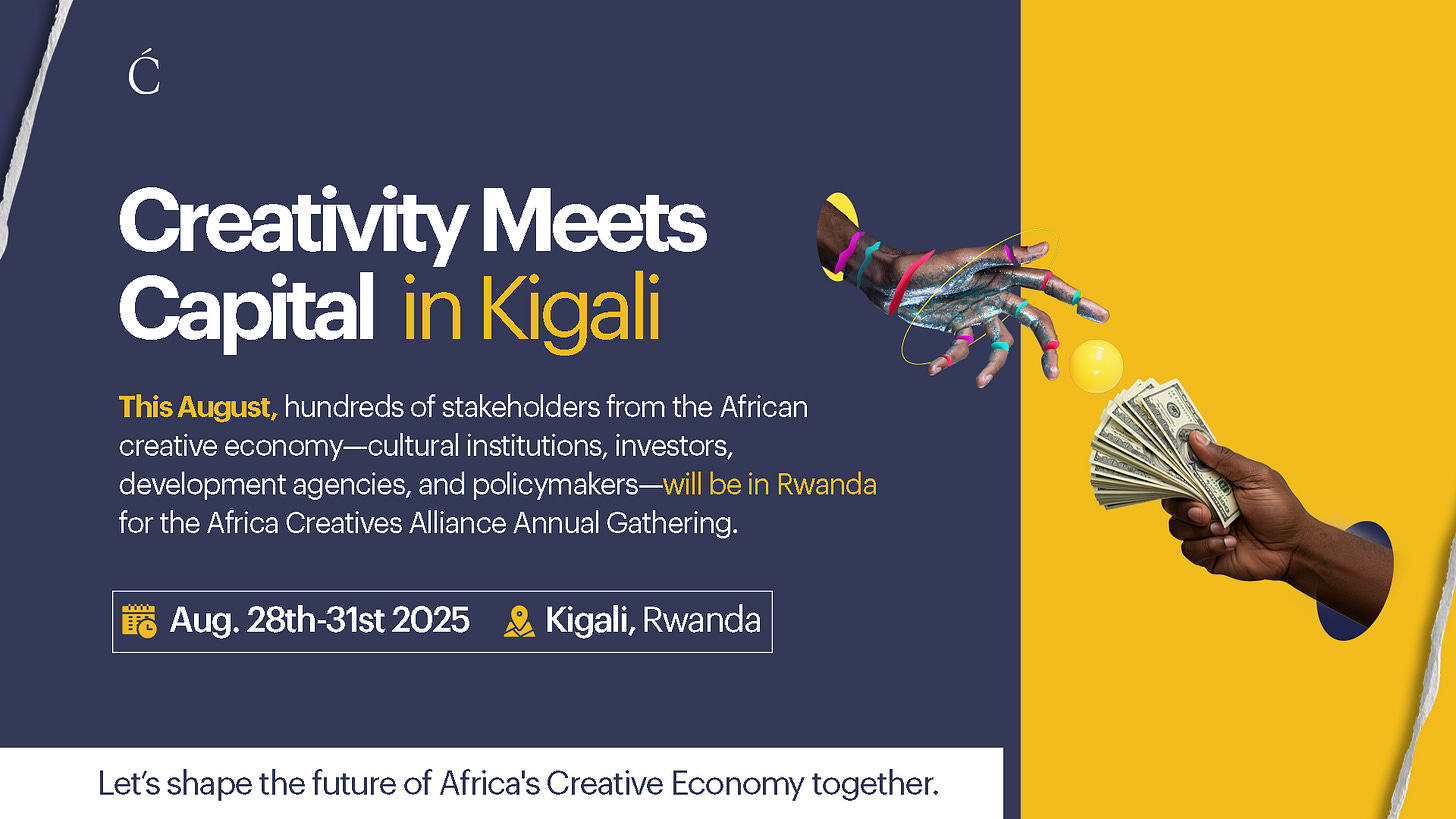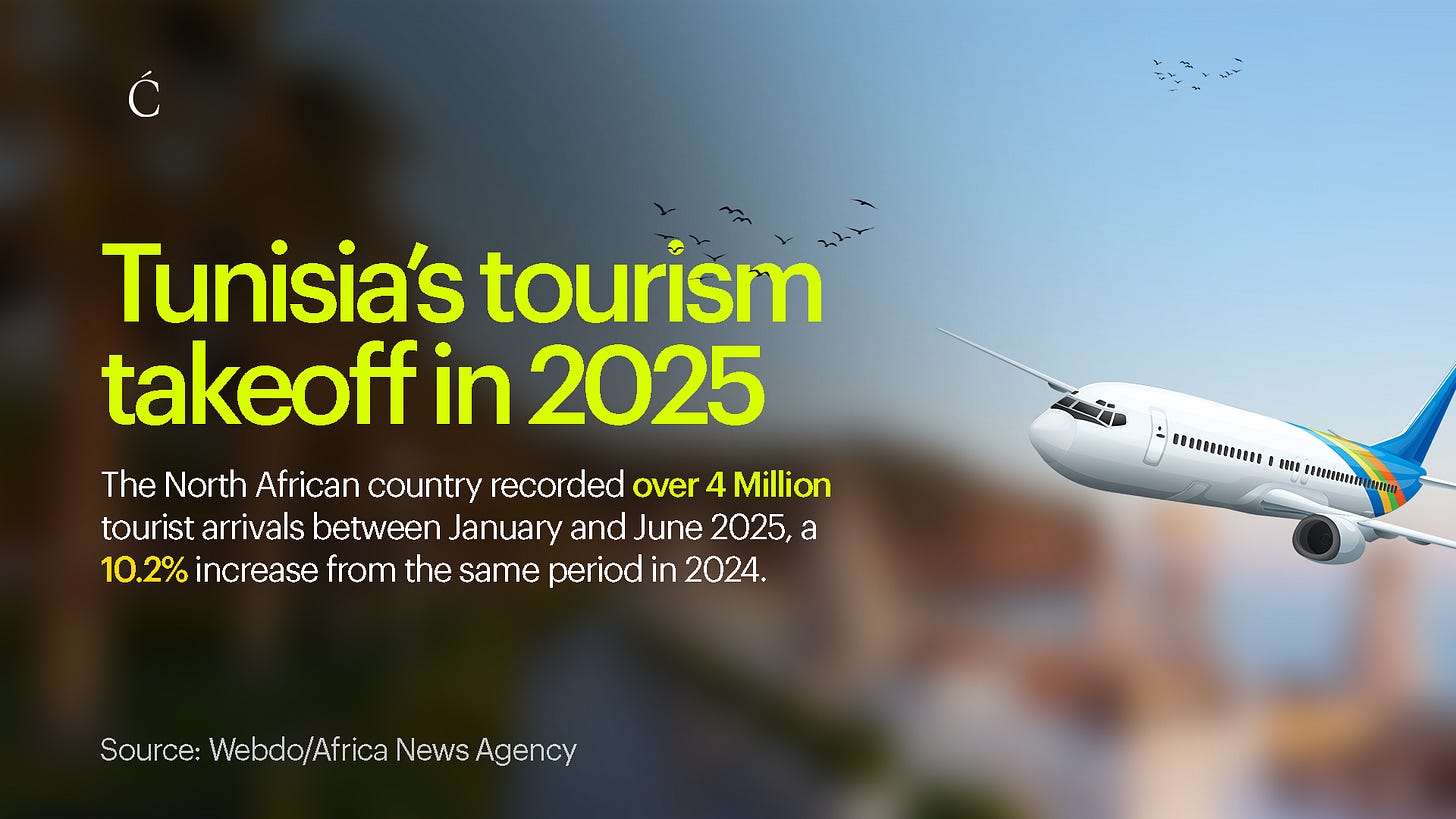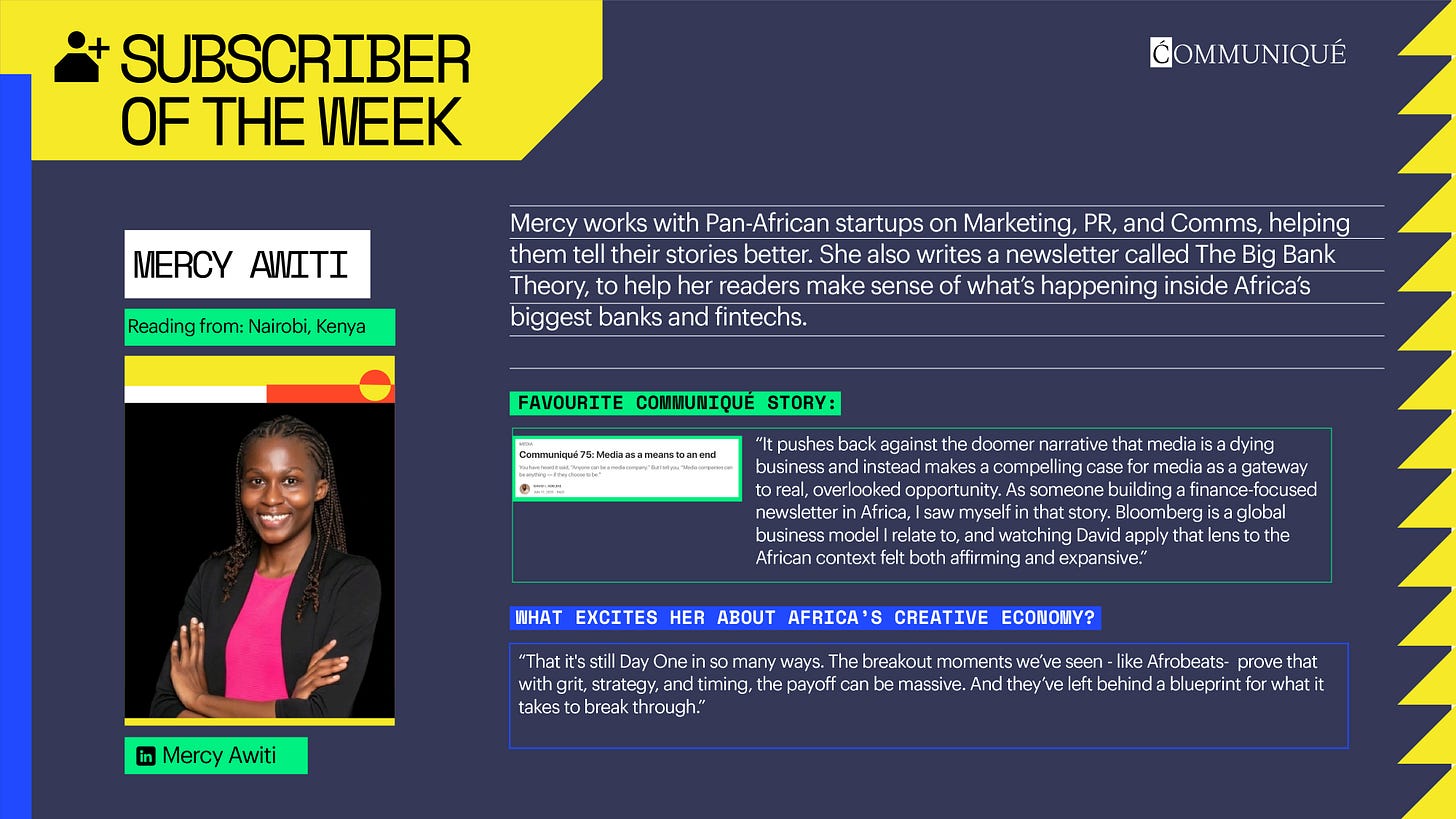Multichoice’s foray into games + Nigeria’s push to preserve its film history
We examine MultiChoice’s high-stakes experiments in a challenging market and Nigeria’s efforts to preserve Nollywood’s cinematic heritage.
Presented by Africa Creatives Alliance
Hello there!
Africa’s media industry is notoriously tricky. Sometimes survival means reinvention, and sometimes it means remembering where you came from. This week’s Digest explores both sides of that coin.
Today, we discuss
Multichoice’s different attempts to stay profitable
The new efforts to preserve Nollywood’s legacy
Center Spread 🗞️
The many ways MultiChoice is trying to stay in the black
MultiChoice is trying something new to retain subscribers and boost profits. In South Africa, the media company has launched Arcade, a gaming hub within its MyDStv app. The new feature, tied to the DStv Rewards system, allows users to play short games inspired by shows and sports for a chance to win prizes, including BoxOffice rentals, event tickets, and subscription upgrades.
It’s a surprising pivot, but perhaps not a random one. Its latest financial results showed a 9% decline in revenue to $2.84 billion, which is well below analyst expectations. And after a second consecutive year of a 9% subscriber decline that effectively wiped out three years of prior growth, MultiChoice is seeking new ways to engage users and add value to its subscriptions.
Gaming is just one of several experiments. Since April, it has been testing weekly subscription plans in Uganda, aiming to match billing cycles to how customers actually earn and spend. If successful, it plans to expand the trial to other markets. Notably, the Gaming Act is currently limited to South Africa, and there are no plans to explore it in other markets yet.
At the same time, the company is reviewing its content bundling strategy. In early June, reports emerged that MultiChoice is considering unbundling SuperSport from the main DStv bouquet to broaden its reach and better monetise one of its most valuable assets.
However, not all of its efforts to retain customers and grow revenue have gone well. So far, in 2025, it has implemented price hikes in four of the 13 markets it exists in on the continent: Nigeria (March), South Africa, and Malawi (April), with Kenya’s increase set to take effect in August. These increases have sparked significant backlash from both customers and regulators.
Critics argue that the timing of these hikes is poor, as they occur amid widespread economic hardship on the continent and follow a string of recent increases. For example, Kenya’s upcoming hike will be the fifth in three years, while Nigeria’s marks the second in a year.
This pricing issue has also put the company under regulatory pressure. In Nigeria, the Federal Competition and Consumer Protection Commission (FCCPC) ordered MultiChoice to halt the price hike. The company defied the directive and is now in a legal standoff with the regulator. In Ghana, the government recently ordered the company to cut prices by 30% to reflect current economic conditions.
The Nigerian Data Protection Commission (NDPC) also fined the company $500,000 for allegedly violating the country’s data protection law.
With falling revenue, shrinking market share, and regulatory heat across several countries, MultiChoice is throwing everything at the wall to stay strong and well. Only time will tell what sticks.
Nigeria moves to preserve Nollywood Legacy
Nigeria’s National Film and Video Censors Board (NFVCB) is set to release the first volume of a landmark compendium documenting Nollywood’s cinematic journey in September 2025.
According to Dr. Husseini Shaibu, Executive Director of the NFVCB, the agency will publish a three-volume series cataloguing all films and videos registered and classified in Nigeria since the start of the video film era. The first volume will cover the years 1994 to 2004.
This effort marks a significant milestone for Nollywood, which has grown into the world’s second-largest film industry by volume but continues to suffer from a lack of structured documentation and reliable data. Researchers, policymakers, and industry stakeholders have struggled with the absence of an authoritative record of the industry’s output for decades.
The compendium will change that. It will provide a reference for scholars, film critics, and policymakers, and bridge a gap that has long hindered serious research and global recognition of Nollywood’s contributions. The project also sets the tone for better sector accountability, rights management, and data-driven growth.
The compendium is part of ongoing efforts to safeguard and celebrate Nigeria’s film heritage. One such effort is Losing Daylight, a multisensory exhibition that captivated audiences in 2023 with its nostalgic look at Nigeria’s film history. In January, Losing Daylight found a permanent home at the historic Glover Memorial Hall on Lagos Island—a venue deeply rooted in Nigeria’s film history, having hosted the country’s first public film screening in 1903. Together, these initiatives are helping secure Nollywood’s legacy.
Crunch Time 📈
Tunisia’s tourism takeoff in 2025
Catch Up 📬
Lagos indie raves are the next frontier of Nigeria’s creative economy
In place of pricey nights out at clubs and bars, more Lagosians are turning to affordable, community-driven spaces like indie raves to unwind after dark and on weekends.
The latest Communiqué essay tries to map this emerging scene. It explores how the entrepreneurs and community builders behind these events are shaping them, why they do what they do, the challenges they face, and what the future might hold.
Read the full story here.
Communiqué’s Subscriber of the Week 🤩
Curiosity Cabinet 🗄️
South Africa’s new copyright bill could position the country as a global haven for creatives, much like the Cayman Islands or Delaware, U.S., are for companies seeking tax advantages.
The payout bottleneck must be addressed for the creator economy to reach its full potential.
The state of the movie streaming market in Africa: Foreign players' own distribution.
YouTube’s new rules for content creators penalize “reused, repetitive, or low-effort content,” not reactions and commentary videos.
Here are the upcoming events in Africa’s creative economy: (The season of month-long Tunisian music, film, and arts festivals is here.)
Hammamet International Festival (FIH) kicks off today, July 11, and runs until August 13, 2025, in Hammamet. Get your tickets and learn more here.
The Carthage International Festival will take place in Tunis from July 19 to August 21. Get your tickets and learn more here
Bizerte International Festival runs from July 15 to August 19 in Bizerte. Get your tickets and learn more here
Southern Africa’s oldest and largest film event, the Durban International Film Festival, will occur from July 17 to 27, 2025, in Durban. Get your tickets and learn more here
See what else is happening across the continent via Communiqué’s African Creative Economy Database.
That’s it for this week’s Digest. See you next week.







